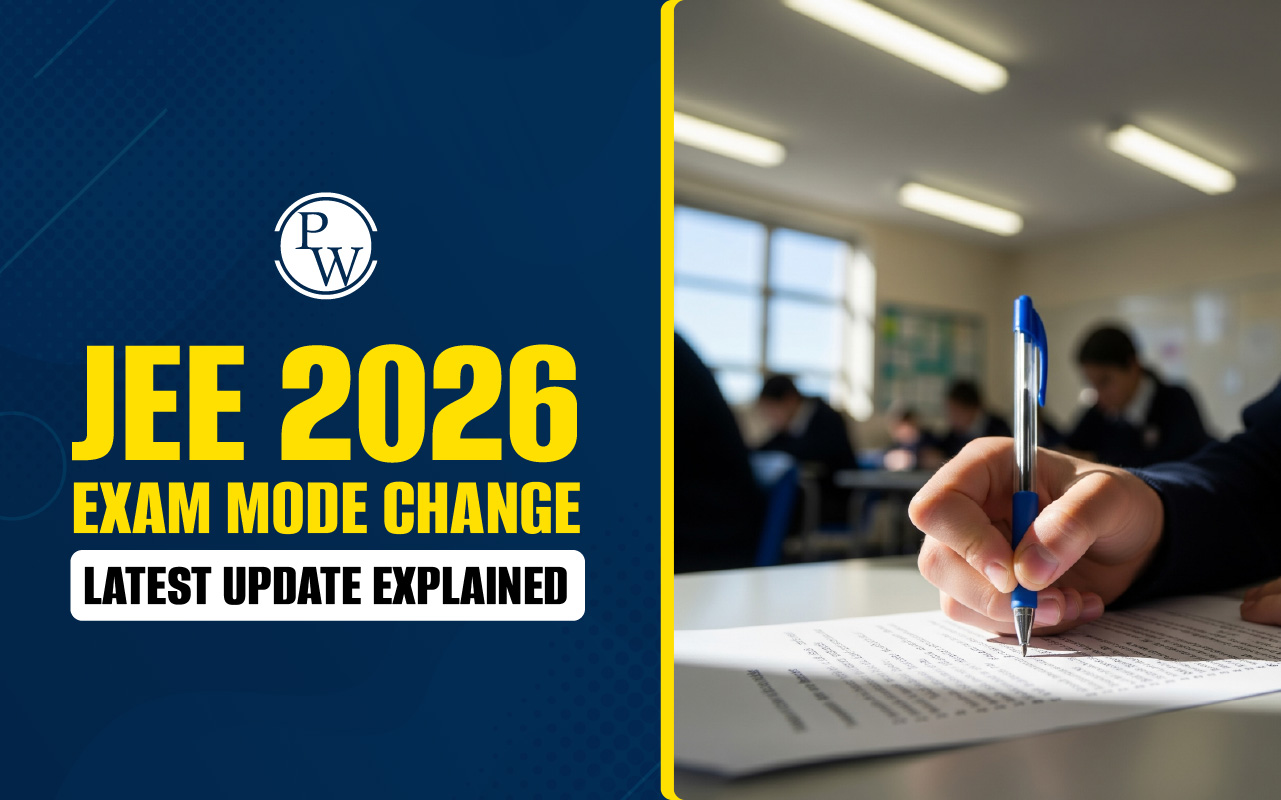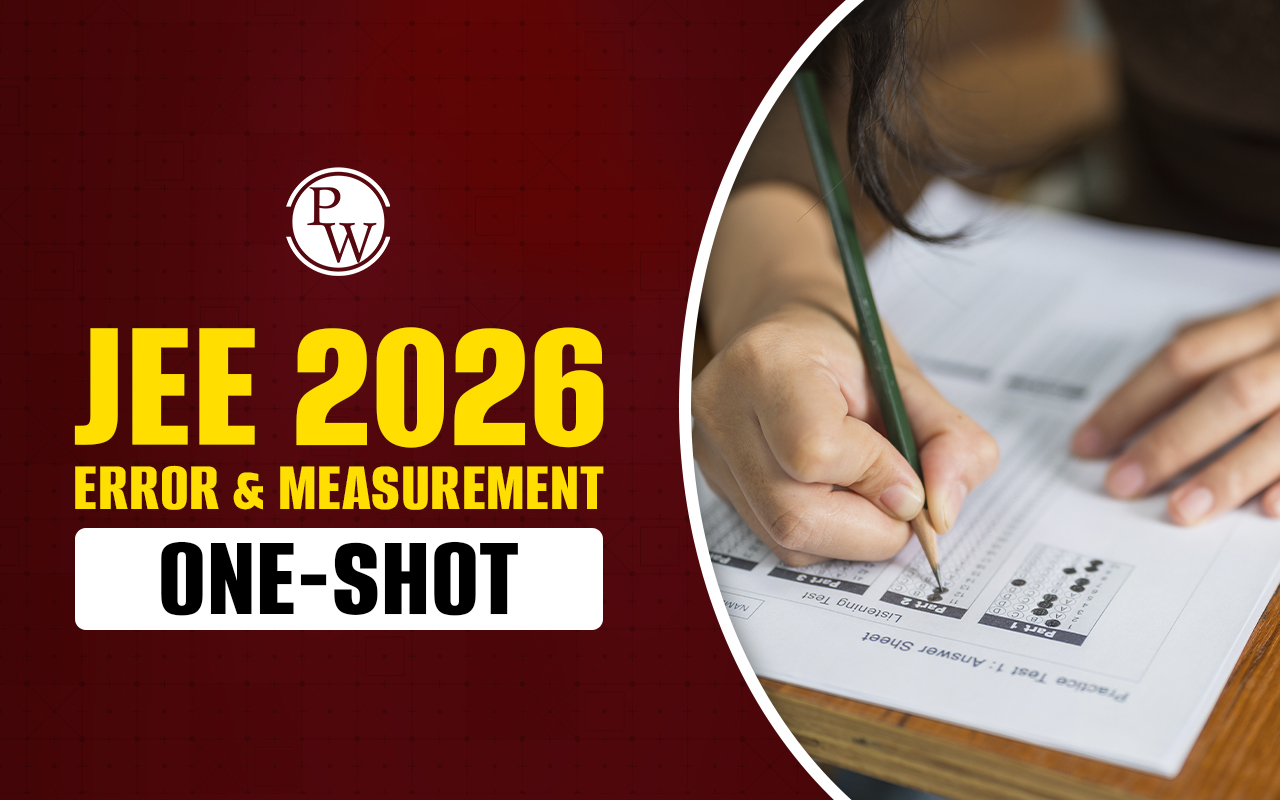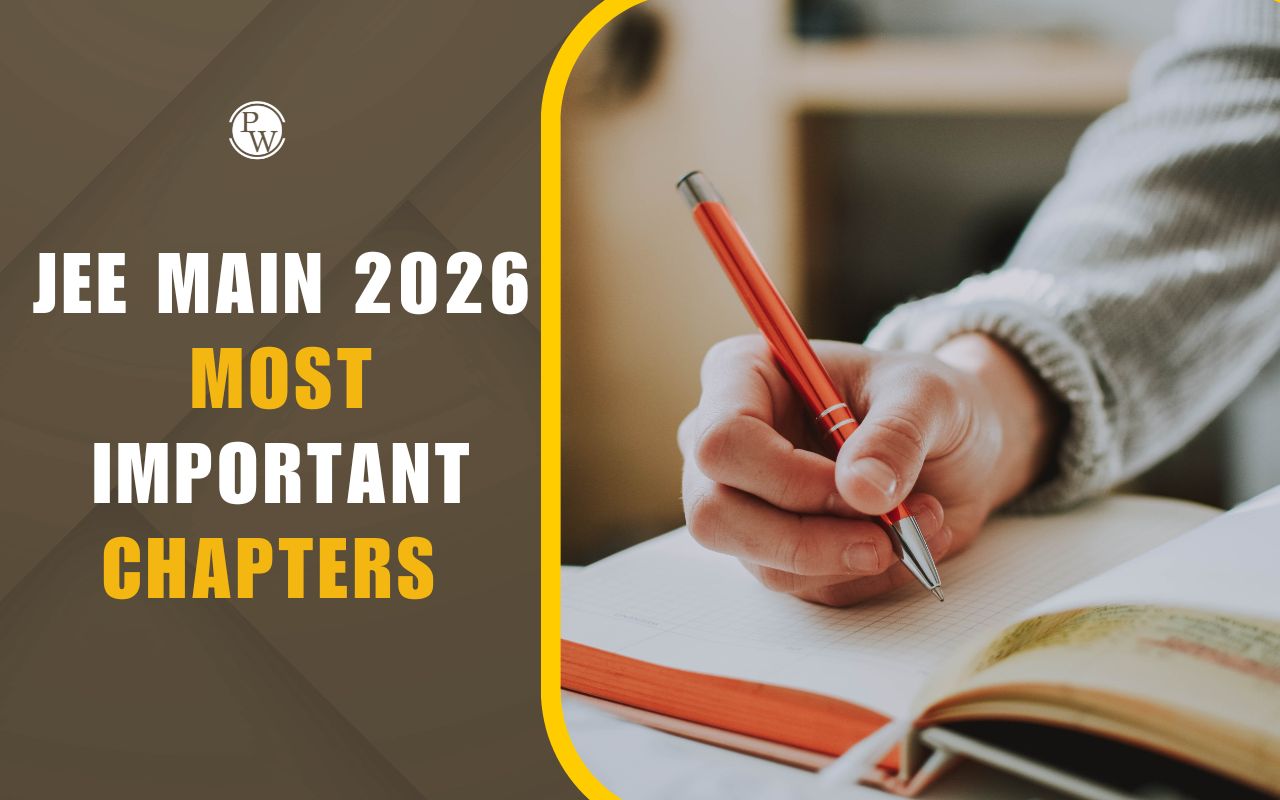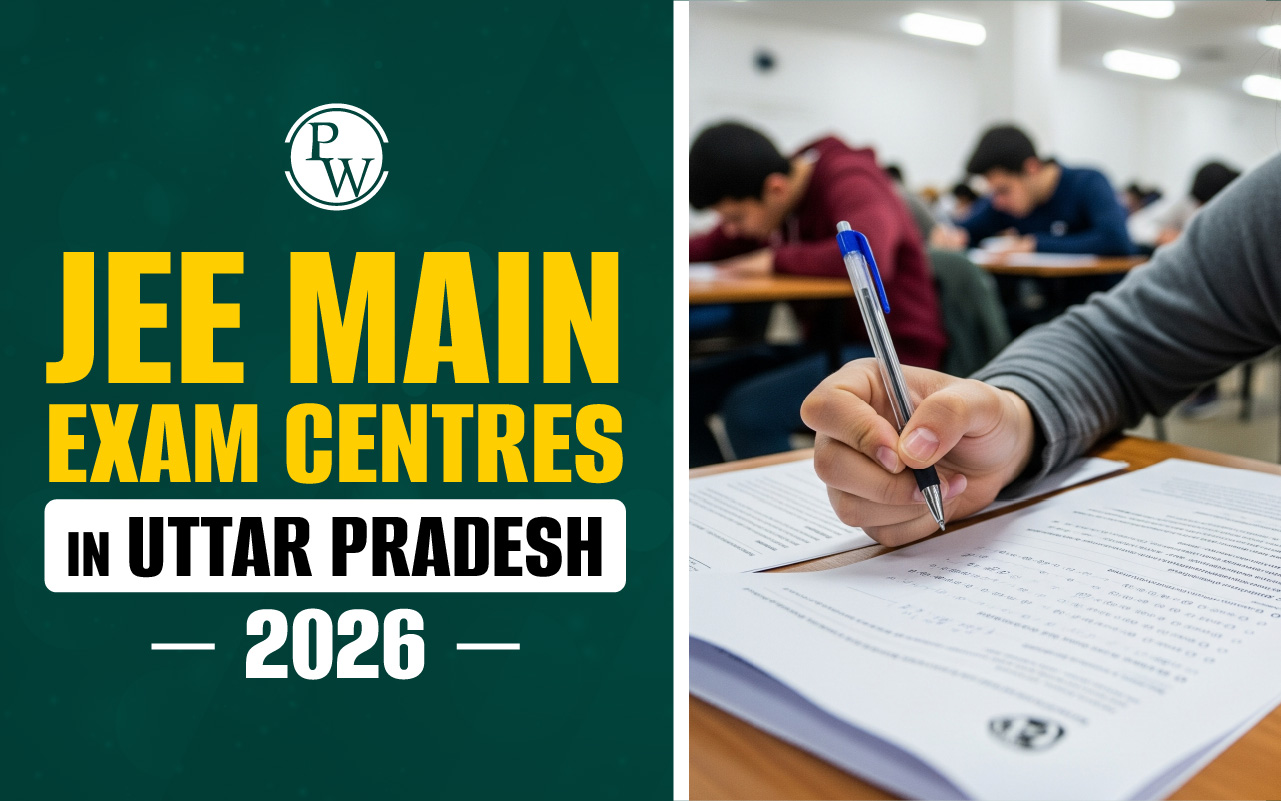
Is Semiconductor in JEE Advanced Syllabus 2025?
No, the JEE Advanced syllabus excluded semiconductors from its syllabus this year, along with communication chapters. These were the last chapters in Physics under the Class XII syllabus. The JEE Advanced Syllabus has been made considering the CBSE and JEE Main.JEE Advanced Syllabus 2025 Major Changes
There are minimal changes in the JEE Advanced Syllabus 2025. Candidates can find the complete JEE Advanced Syllabus on @jeeadv.ac.in. IIT Madras released the syllabus this year for the exam and added some topics which are not included in the JEE Main 2025 Exam. The JEE Advanced Syllabus has been increased slightly this year, and candidates need to learn a few more extra topics in Maths and Physics. However, there are no major changes in Chemistry. Candidates are confused is semiconductor in JEE Advanced Syllabus 2025 or not? However, let us find out this below with all the other major changes in the 2025 syllabus. The JEE Advanced Syllabus contains statistics, but the Triangle chapter has yet to be excluded from the Math syllabus. Also, semiconductors and Communications should be included in this year's syllabus. But the, topics like forced and damping oscillations, EM Waves, and polarizations have been added to the physics syllabus.JEE Advanced Syllabus 2025 For Physics
Candidates can check the syllabus for Physics in the JEE Advanced Syllabus in the table given here. The table contains general, mechanical, thermal, Optics and other major topics covered in this year's syllabus.| JEE Advanced Syllabus 2025 For Physics | |
| Chapters | Units |
| General | Units and dimensions, dimensional analysis; least count, significant figures; Methods of measurement and error analysis for physical quantities pertaining to the following experiments: Experiments based on using Vernier calipers and screw gauge (micrometer), Determination of g using simple pendulum, Young’s modulus by Searle’s method, Specific heat of a liquid using calorimeter, focal length of a concave mirror and a convex lens using u-v method, Speed of sound using resonance column, Verification of Ohm’s law using voltmeter and ammeter, and specific resistance of the material of a wire using meter bridge and post office box. |
| Mechanics | Kinematics in one and two dimensions (Cartesian coordinates only), projectiles; Uniform circular motion; Relative velocity. |
| Newton’s laws of motion; Inertial and uniformly accelerated frames of reference; Static and dynamic friction; Kinetic and potential energy; Work and power; Conservation of linear momentum and mechanical energy. | |
| Systems of particles; Centre of mass and its motion; Impulse; Elastic and inelastic collisions. | |
| Law of gravitation; Gravitational potential and field; Acceleration due to gravity; Motion of planets and satellites in circular orbits; Escape velocity. | |
| Rigid body, moment of inertia, parallel and perpendicular axes theorems, moment of inertia of uniform bodies with simple geometrical shapes; Angular momentum; | |
| Torque; Conservation of angular momentum; Dynamics of rigid bodies with fixed axis of rotation; Rolling without slipping of rings, cylinders and spheres; Equilibrium of rigid bodies; Collision of point masses with rigid bodies. | |
| Linear and angular simple harmonic motions. | |
| Hooke’s law, Young’s modulus. | |
| Pressure in a fluid; Pascal’s law; Buoyancy; Surface energy and surface tension, capillary rise; Viscosity (Poiseuille’s equation excluded), Stoke’s law; Terminal velocity, Streamline flow, equation of continuity, Bernoulli’s theorem and its applications. | |
| Wave motion (plane waves only), longitudinal and transverse waves, superposition of waves; Progressive and stationary waves; Vibration of strings and air columns; Resonance; Beats; Speed of sound in gases; Doppler effect (in sound). | |
| Thermal physics | Thermal expansion of solids, liquids and gases; Calorimetry, latent heat; Heat conduction in one dimension; Elementary concepts of convection and radiation; Newton’s law of cooling; Ideal gas laws; Specific heats (Cv and Cp for monoatomic and diatomic gases); Isothermal and adiabatic processes, bulk modulus of gases; Equivalence of heat and work; First law of thermodynamics and its applications (only for ideal gases); Blackbody radiation: absorptive and emissive powers; Kirchhoff’s law; Wien’s displacement law, Stefan’s law. |
| Electricity and magnetism | Coulomb’s law; Electric field and potential; Electrical potential energy of a system of point charges and electrical dipoles in a uniform electrostatic field; Electric field lines; Flux of electric field; Gauss’s law and its application in simple cases, such as, to find field due to infinitely long straight wire, uniformly charged infinite plane sheet and uniformly charged thin spherical shell. |
| Capacitance; Parallel plate capacitor with and without dielectrics; Capacitors in series and parallel; Energy stored in a capacitor. | |
| Electric current; Ohm’s law; Series and parallel arrangements of resistances and cells; Kirchhoff’s laws and simple applications; Heating effect of current. | |
| Biot–Savart’s law and Ampere’s law; Magnetic field near a current-carrying straight wire, along the axis of a circular coil and inside a long straight solenoid; Force on a moving charge and a current-carrying wire in a uniform magnetic field. | |
| Magnetic moment of a current loop; Effect of a uniform magnetic field on a current loop; Moving coil galvanometer, voltmeter, ammeter and their conversions. Electromagnetic induction: Faraday’s law, Lenz’s law; Self and mutual inductance; RC, LR and LC circuits with d.c. and a.c. sources. | |
| Optics | Rectilinear propagation of light; Reflection and refraction at plane and spherical surfaces; Total internal reflection; Deviation and dispersion of light by a prism; Thin lenses; Combinations of mirrors and thin lenses; Magnification. |
| Wave nature of light: Huygen’s principle, interference limited to Young’s double-slit experiment. | |
| Modern physics | Atomic nucleus; Alpha, Beta and Gamma radiations; Law of radioactive decay; Decay constant; Half-life and mean life; Binding energy and its calculation; Fission and fusion processes; Energy calculation in these processes. |
| Photoelectric effect; Bohr’s theory of hydrogen-like atoms; Characteristic and continuous X-rays, Moseley’s law; de Broglie wavelength of matter waves. | |
JEE Advanced Physics Preparation Tips 2025
Physics is a difficult subject in JEE Advanced exam. Candidates must follow the below preparation tips to prepare for JEE Advanced Physics exam.- Master the Basics : Ensure you have a strong grasp of fundamental concepts like mechanics, electricity, and optics. These are the building blocks for more complex topics.
- Solve Conceptual Problems : Work on problems that test your understanding of concepts, not just your ability to apply formulas. This will help you think critically.
- Use Reference Books : Besides NCERT, consider standard books like H.C. Verma or D.C. Pandey for deeper insights and varied problems.
- Practice Numerical Problems : Physics is all about problem-solving. Regularly practice numerical problems to become comfortable with calculations and applying formulas.
- Understand Derivations : Instead of rote learning, try to understand the derivations of important formulas. This helps you remember them better and know when to use them.
- Revise Regularly : Periodically review key concepts and formulas. This reinforces your memory and keeps you sharp.
- Work on Units and Conversions : Familiarize yourself with different units and how to convert them. This will help you avoid errors during problem-solving.
- Simulate Experiments : If possible, conduct simple experiments at home or use online simulations to see physics principles in action.
- Focus on Application : Relate physics concepts to real-life scenarios. This not only makes learning interesting but also helps in better retention.
- Time Management : During practice, time yourself while solving problems. This will help you manage your time effectively during the actual exam.
Study Material For IIT JEE 2025 Preparation
Physics Wallah offers comprehensive study material for IIT JEE 2025, including video lectures, practice problems, mock tests, and detailed notes, designed to boost conceptual understanding and exam readiness.Is Semi Conductor In JEE Advanced Syllabus FAQs
Q.1. Is semiconductor in JEE Advanced Syllabus 2025?
Ans: No, the JEE Advanced Syllabus does not contain Semiconductor and Communication in this year's syllabus.
Q.2. Where can I find the JEE Advanced latest syllabus for 2025?
Ans: Candidates can find the JEE Advanced Syllabus on the official website @jeeadv.ac.in.
Q.3. Is statistics in the JEE Advanced Syllabus 2025?
Ans: No, this year does not include statistics in the JEE Advanced Syllabus.
Q.4. What is JEE Advanced 2025 exam date?
Ans. Candidates can expect JEE Advanced 2025 exam to be conducted in the last week of April 2025.
🔥 Trending Blogs
Talk to a counsellorHave doubts? Our support team will be happy to assist you!

Free Learning Resources
PW Books
Notes (Class 10-12)
PW Study Materials
Notes (Class 6-9)
Ncert Solutions
Govt Exams
Class 6th to 12th Online Courses
Govt Job Exams Courses
UPSC Coaching
Defence Exam Coaching
Gate Exam Coaching
Other Exams
Know about Physics Wallah
Physics Wallah is an Indian edtech platform that provides accessible & comprehensive learning experiences to students from Class 6th to postgraduate level. We also provide extensive NCERT solutions, sample paper, NEET, JEE Mains, BITSAT previous year papers & more such resources to students. Physics Wallah also caters to over 3.5 million registered students and over 78 lakh+ Youtube subscribers with 4.8 rating on its app.
We Stand Out because
We provide students with intensive courses with India’s qualified & experienced faculties & mentors. PW strives to make the learning experience comprehensive and accessible for students of all sections of society. We believe in empowering every single student who couldn't dream of a good career in engineering and medical field earlier.
Our Key Focus Areas
Physics Wallah's main focus is to make the learning experience as economical as possible for all students. With our affordable courses like Lakshya, Udaan and Arjuna and many others, we have been able to provide a platform for lakhs of aspirants. From providing Chemistry, Maths, Physics formula to giving e-books of eminent authors like RD Sharma, RS Aggarwal and Lakhmir Singh, PW focuses on every single student's need for preparation.
What Makes Us Different
Physics Wallah strives to develop a comprehensive pedagogical structure for students, where they get a state-of-the-art learning experience with study material and resources. Apart from catering students preparing for JEE Mains and NEET, PW also provides study material for each state board like Uttar Pradesh, Bihar, and others
Copyright © 2026 Physicswallah Limited All rights reserved.









